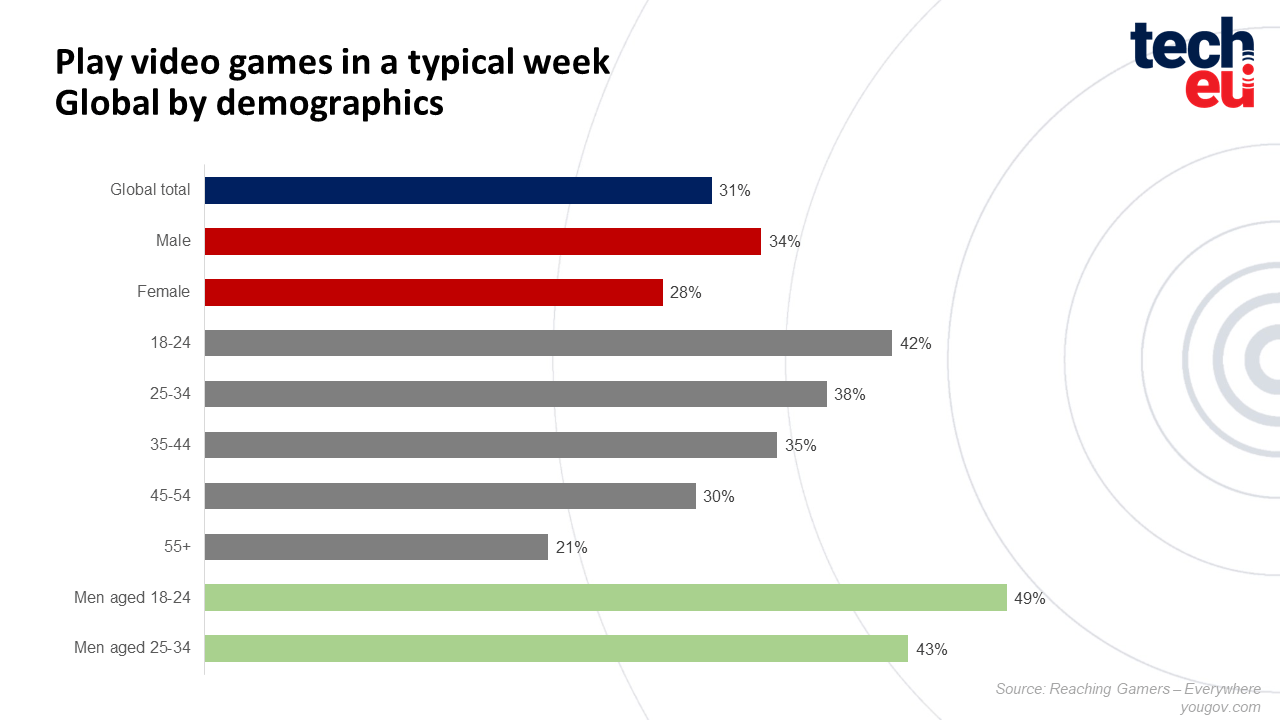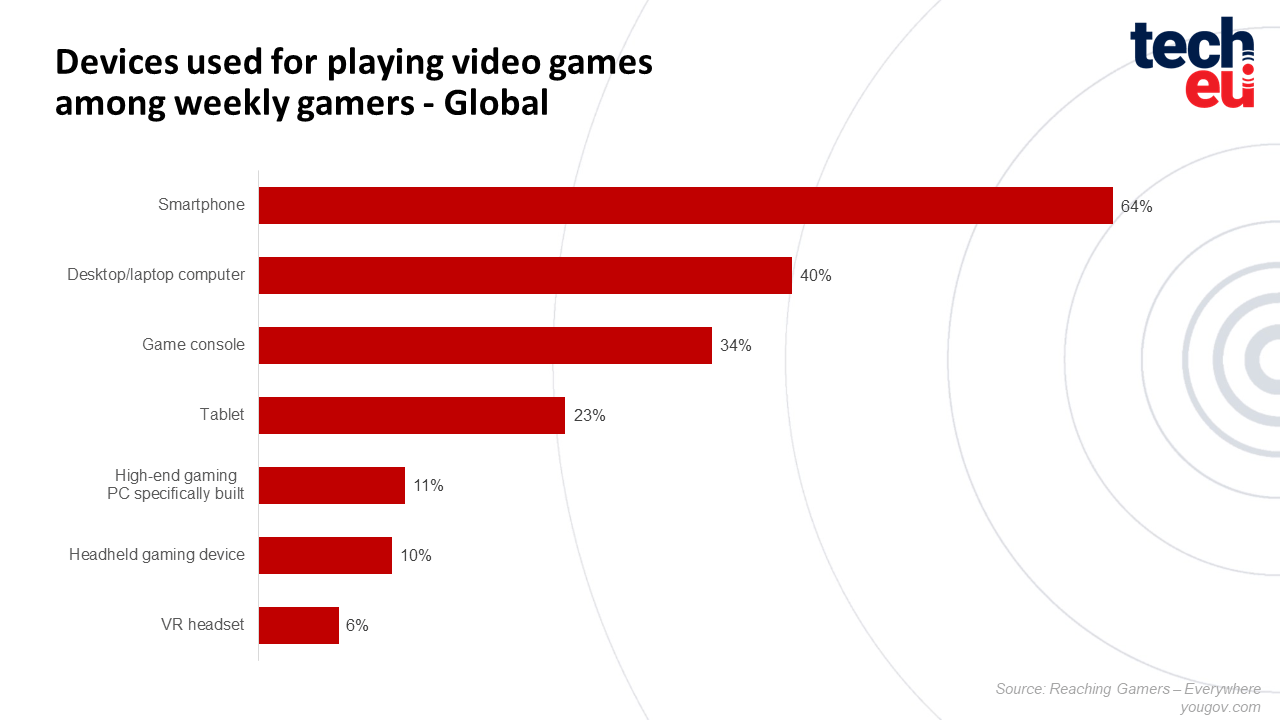With the growth and development of technology, which have undoubtedly had an effect on non-traditional and media channels the media and entertainment industry has undergone significant changes, accelerated only greater in the past few years.
As the tech that we consume changes and advances, so too do consumer expectations and behaviour. Such a situation means that marketers have to constantly examine and re-examine the behaviour and habits of consumers, in order to create and market their product in the best way.
One of the areas that have played a significant role when it comes to shaping the way consumers/audiences communicate is gaming. This change is primarily reflected in the way players interact, engage and consume content while playing. It is crucial in the process of identifying the place of games in the media mix so that marketing researchers can best explore the best synergies between gaming and marketing.
The report "Reaching gamers - everywhere" conducted by YouGov, a UK-based international research, data and analytics group, examines the entertainment habits of global consumers and where and how games fit into the ecosystem, and what types of media activities are being undertaken, i.e., what's keeping consumers entertained. The report was compiled via 18 international markets including Great Britain, France, Germany, Spain, Denmark, Italy, Poland and Sweden.
Gaming in today’s global entertainment landscape
Many of the changes that have taken place in the past few years have spurred changes in the media, entertainment and gaming fields. With consumers spending more time at home, they've been offered an increasingly wide range of media, entertainment and gaming options. Faced with such a choice, the question arises, what is it that occupies and holds their attention, that is, where does the gaming industry fit into the global media and entertainment landscape?
According to the research, and a fact that should come as no surprise, internet-based activities are the dominant player across the existing media/entertainment landscape. Globally, the most common weekly activities that consumers carry out are:
- visiting websites (64% of consumers),
- engaging with social networks (57% of consumers),
- watching content on video streaming services such as Netflix (48% of consumers).
On a weekly basis, 31% of respondents (globally) play video games. From a demographic point of view, 34% of men and 28% of women are playing games on a weekly basis.
On the European level, the proportion of adults who claim to spend most of their time gaming compared to other media activities is lower than in other areas of the world. In the 8 European countries covered in the research, 11.4% of respondents indicated that they spend most of their time gaming, a figure which is lower than the global average (14%).
Also, on the European level, Great Britain has the highest percentage of users, with an almost equal proportion playing video games on consoles (48%) and those who use smartphones (49%). Other leading markets for console gaming include Sweden and Germany.
Greater availability of games through mobile devices, as well as different types of games such as puzzle and role-playing games (RPGs) are very popular among women. When it comes to age, 42% are players aged 18-24. And looking globally, most activities related to gaming, social media, video streaming, etc. are popular among the population under 45 years old, while older users are more focused on watching live and non-live TV, listening to the radio, and reading newspapers.

Access and availability of games have become more available and popular with the raise in the use of mobile devices, given that access and play from anywhere at any time is enabled. Smartphones are in first place when it comes to devices through which games are accessed (64%) among those who play the most games on a weekly basis, followed by desktop/laptop devices, and then enthusiasts and lovers of gaming, using devices such as Xbox and PlayStation.
Although Virtual reality (VR) shows strong potential for use in the world of gaming, the adoption of VR headsets remains low, with only 6% of weekly gamers using VR headsets during their gaming sessions.

It's not just about pure gaming. Sometimes it goes far beyond "just" the game, with social interaction as one of the key aspects of gaming. Sharing the experience and discussions with each other is very often a huge part of the gaming communities. Especially if you consider that gamers spend an average of 10 hours a week playing games.
Also, gamers have a variety of interests beyond gaming. For marketers, it's precisely these other interests where the major opportunities lie. As stated in the report, the most popular topics that gamers would click on if they appeared somewhere in their feeds:
- news (42%)
- food and drink (34%)
- music (33%)
- science (32%)
- travel and holidays (31%) and
- computers and technology (30%).
It is obvious that the wide range of interests among gamers presents key cross-collaboration opportunities for brands and marketers to enrich connection and engagement with their target gaming audience.
For gamers, it's important to be part of one or many communities, to follow influencers and streamers, to socialise in virtual game worlds, etc. That is why, social media plays a key role in gamers' lives because these individuals are more likely to engage with ads on social media than on regular websites. Although gamers have a diverse range of interests, brands need to understand and reflect nuances between different gaming demographics in order to ensure they cut through the noise and reach their desired audience with optimal content at optimal times to achieve optimal results.



Would you like to write the first comment?
Login to post comments